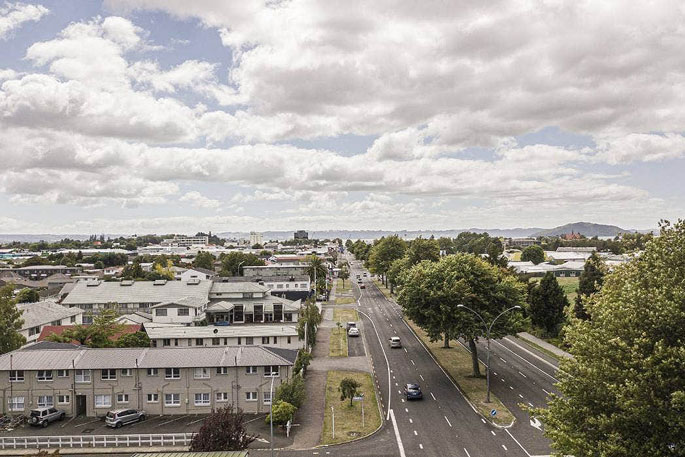Convicted criminals are serving home detention, parole and community detention sentences in emergency accommodation places, but Corrections is unable to say how many, where or provide a nationwide total.
But the numbers involved appear to be large, prompting concerns from community advocates worried about vulnerable people having little choice or knowledge about being shacked up next to convicts.
However, it was able to say it is funding more than 1000 emergency accommodation places a year at a cost or more than $7m – up from $3.8m a year in 2016.
Stuff obtained the information after asking Corrections for details on the number of people it manages in emergency accommodation, including how many are on Home Detention, how many are in each region and what the nationwide total is.
In a written response, Corrections said that information could not be supplied as it would involve individually assessing each person's file across the country and correlating it with emergency housing addresses.
That response drew criticism from Rotorua councillor Merepeka Raukawa-Tait, who has raised concerns in the past about 'mothers living with children next to 501s”.
She said it was a concern Corrections was unable to provide numbers of how many convicted criminals are where across the emergency accommodation spaces.
'Particularly if there are women and children living there. They should know there's a former inmate there.”
Raukawa-Tait also said she believed Corrections would know who was where, citing release conditions that can accompany community-based sentences.
'I believe they know exactly how many former, recently released and community sentence criminals are in the motels,” she said.
'It [MSD motel living] may not be conducive to the former prisoners' welfare either.”
 Rotorua councillor, and Chair of the Whānau Ora Commissioning Agency Merepeka Raukawa-Tait, said she was concerned mothers and children could be under the same roof as criminals.
Rotorua councillor, and Chair of the Whānau Ora Commissioning Agency Merepeka Raukawa-Tait, said she was concerned mothers and children could be under the same roof as criminals.
'Since Rotorua has hit the headlines, Ministers in Wellington want to know too.”
The tourist town motel sectors' transformation into emergency housing has become a case study in human misery and a political headache for the government in recent months.
In an accompanying statement from Chief Probation Officer Darius Fagan in response to Stuff's queries, he said around 15,000 people are released from prison each year, and finding suitable accommodation for them is 'one of our most significant challenges”.
He said they contract almost 1000 emergency accommodation places to be used 'by people on a range of conditions, including home detention, parole, community detention and release on conditions”.
Fagan also said public safety was their top priority, and 'no person would be permitted to reside at an address if it was considered that the risk could not be safely managed and public safety upheld”.
'Emergency accommodation is used as a last resort,” he said.
'The alternative is that these people would otherwise be homeless, which would present an unacceptable safety risk to communities.”
Fagan said that at present, Corrections have 5700 people being electronically monitored, 1600 of these on home detention, and 1900 people on electronically monitored bail.
He also said any address considered for home detention 'must be assessed as suitable” before approval is given.
'Emergency accommodation at motels is used as a last option and is a temporary measure,” he said.
'If this is required for a person subject to home detention, we work closely with MSD, who are responsible for sourcing and funding the emergency accommodation.
'We are responsible for providing information to MSD to ensure we can safely manage the person, approving the temporary alternative address, and maintaining a relationship with the accommodation provider as appropriate.
'If we do approve for a person to move to emergency accommodation, we then review and reassess what the person's longer-term options are. If we are unable to identify a suitable long-term address, we may consider returning the matter to the Court for an application to vary the sentence.”
Fagan also said that the provision of emergency housing is temporary, so it would be unlikely a person would begin their home detention sentence at emergency accommodation, or spend their whole sentence there.



1 comment
What kind of Justice system...
Posted on 27-09-2022 12:24 | By morepork
... sentences criminals to stay in a hotel? This is just stupid. If the jails are full, it would be far cheaper to provide temporary accommodation in pre-fabricated, purpose built facilities (similar to the transit camps provided for homeless people and families waiting for a house in the 1950s), which are clean and comfortable but far from luxurious. Spending millions to temporarily house criminals is counter-productive for the Justice system, and just reflects poor planning and investment in proper penal facilities. Knowing you'll get a stay in a decent hotel with facilities like swimming pool, etc. is hardly a disincentive to committing crime, never mind the problems outlined in the article with mothers and kids.
Leave a Comment
You must be logged in to make a comment.